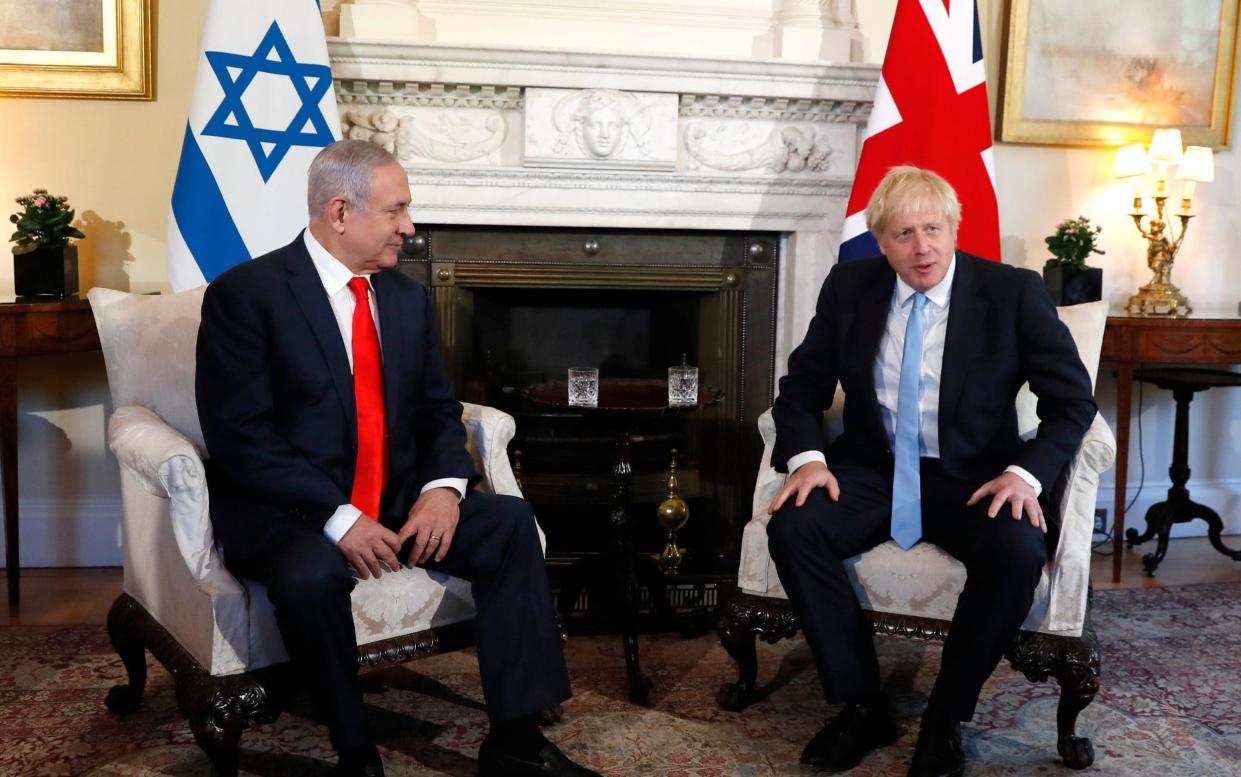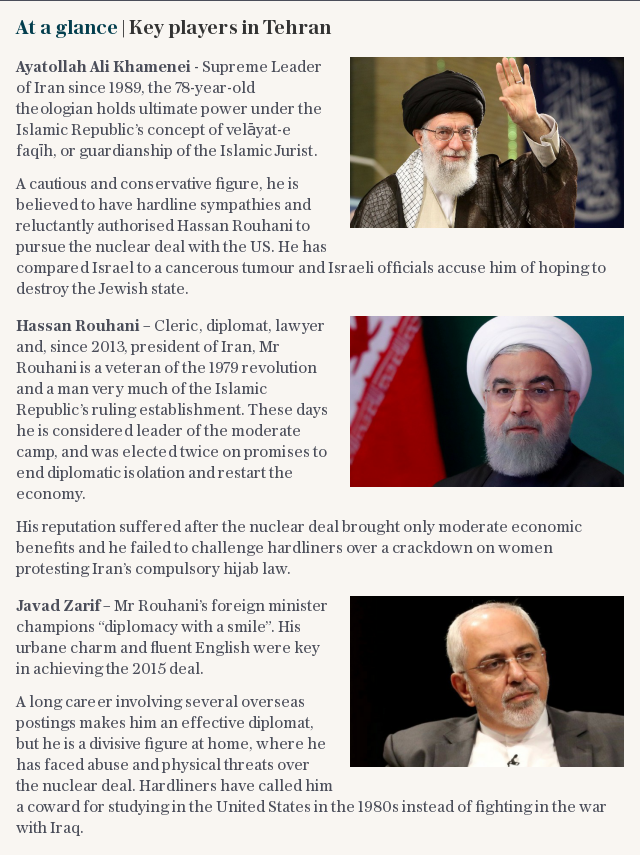Britain rejects calls to take tougher stance on Iran as Benjamin Netanyahu meets Boris Johnson

Downing Street on Thursday appeared to reject Israeli calls for Britain to take a harder line against Iran, despite Tehran warning it would announce new violations of the 2015 nuclear deal this weekend.
Boris Johnson met Benjamin Netanyahu in London as the Israeli prime minister continued his campaign to urge European leaders to abandon the Iran nuclear deal and impose fresh sanctions on Iran.
Mr Netanyahu also acknowledged that Donald Trump may meet Iran’s president at the United Nations this month but said America should keep up economic pressure even if the unprecedented talks take place.
“I can’t tell you when or whether the talks will take place between President Trump and Rouhani,” Mr Netanyahu told reporters in London. “Today I think what is needed is more pressure and the leverage which will come from that pressure on the regime in Iran.”
The meeting between Mr Netanyahu and Mr Johnson came as Iran said it would announce a third tranche of nuclear deal violations this Saturday. The new breaches are likely to include bringing new nuclear centrifuges online and expanding atomic research.

Iran has been gradually stepping up its violations of the nuclear deal in an effort to pressure European states to find a way around US sanctions and provide relief to Iran’s flagging economy.
Israeli officials said they were encouraged by the meeting with Mr Johnson, who voiced support for Israel’s right to defend itself against Hizbollah, the Lebanese militant group backed by Iran.
But there did not appear to be any shift in the UK’s position and a Downing Street spokesman indicated Mr Johnson would continue Theresa May’s policy of siding with France and Germany in support of the nuclear deal, despite US and Israeli pressure.
“Both Prime Ministers agreed on the need to prevent Iran getting a nuclear weapon and stop wider destabilising Iranian behaviour. [Mr Johnson] stressed the need for dialogue and a diplomatic solution,” the spokesman said.
Emmanuel Macron, the French president, has been working on an initiative to encourage Iran to come back into compliance with the nuclear deal in return for a $15bn line of bank credit.

Mr Macron is also eager to engineer a meeting between Mr Trump and Hassan Rouhani, Iran’s president, during this month’s UN General Assembly summit.
Mr Trump said this week he was open to such a meeting, which would be the first face-to-face encounter between US and Iranian leaders since Iran’s 1979 Islamic revolution. “Anything's possible. They would like to be able to solve their problem,” Mr Trump said.
Iran has so far publicly rejected the idea of talks until the US lifts sanctions. But Mr Netanyahu’s comments indicate Israel, an arch-enemy of Iran, is taking the possibility of a meeting seriously.
“I don’t rule it out and I certainly don’t decide for the president of the US when to meet and who to meet with,” Mr Netanyahu said.
The European Union urged Iran not go ahead with its planned violations of the nuclear deal. “We urge Iran to reverse these steps and refrain from further measures that undermine the nuclear deal," he said.
During the Downing Street meeting, Mr Johnson briefly mentioned Britain’s continued support for a two-state solution to the Israeli-Palestinian conflict, a policy rejected by both Israel and the Trump administration.
It emerged Thursday that Jason Greenblatt, Mr Trump’s envoy on Israel-Palestinian peace, is leaving the White House. His departure was expected but means he is leaving before rolling out the Trump administration’s long-awaited Israeli-Palestinian peace plan.
The plan has already been rejected by the Palestinians, who say the White House’s policies mean it can't be trusted as an honest broker. The US says it intends to roll out the plan sometime after Israel’s elections on September 17.
Mr Netanyahu, a close ally of Mr Trump, is trying to fend off a challenge from a centrist coalition to continue his 13 years in power.

